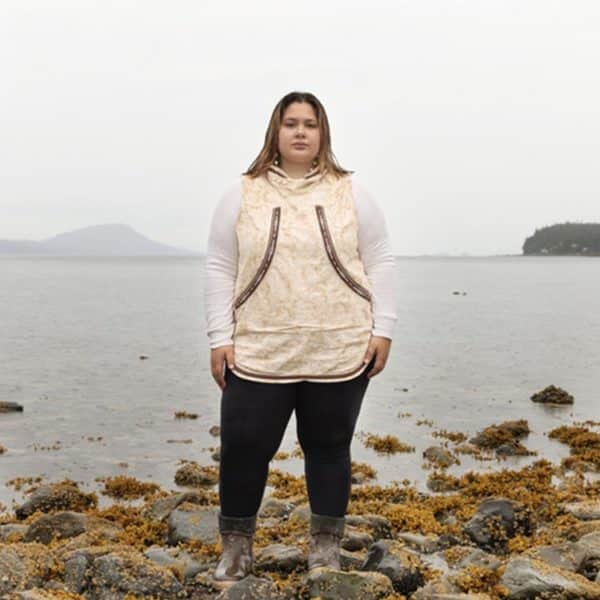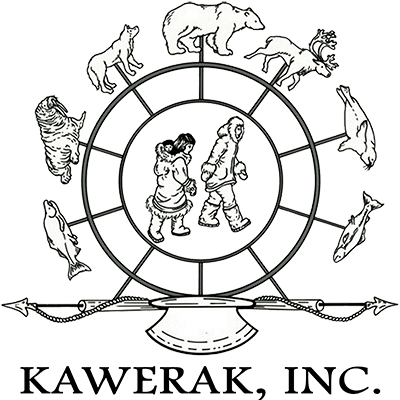Name: Tonia Qanannaq Osborne 
Hometown and/or current city: Nome, Alaska
Current job or title: Artist
Degree title: BS Marine Biology
How do you currently engage with conservation and/or cultural activities?
Working in education has given me the opportunity to share with children the opportunities they have in the STEM field. I share all the cool jobs I’ve worked where I’ve traveled to encourage them to continue their education. I work with ivory and baleen and always educate people on the importance of our relationship to marine mammals and our subsistence rights. I would love to eventually teach ivory carving to older kids and young adults when I have an official carving space.
What is something about our people, culture, and communities that make you feel proud?
Something I am very proud of a about our people is our innovations and the amazing inventions we’ve created with our hands. We’ve made boats from walrus skin, tools out of ivory and bone, hoods that double as built-in baby carriers, harpoons for hunting seals and whales, and so much more that inspired the rest of the world.
What is an issue that is important to you that you think people should get more involved with?
An important issue people should be more involved in is understanding the important roles marine mammals play in our ecosystem and to our people. There are too many misconceptions about our traditional foods and practices that have been around for thousands of years. Many people think Inuit are a threat to marine mammals like belugas and bowheads, when our real threat is climate change and the increased opportunities for shipping traffic in the Arctic. We have already been living through the impacts of climate change with less food security, erosion, melting sea ice for breeding walrus and seals, reduced shore ice for pulling large hunted animals onto land, and so much more. Many hunters today have to spend more money on gas to travel further distances they never had to before. The reduced ice means less breeding grounds for walrus and seals, which in turn negatively impacts coastal subsistence-based Alaska Native communities.
What advice do you have for current and prospective Caleb Scholars?
Take advantage of your undergraduate career! The opportunities for undergraduates in the STEM field in Alaska is limitless. There are so many amazing internships in the summer and even throughout the school year. Your university likely has research opportunities if you’re interested in that field. Take the time to discover what you really love during your undergrad so you don’t have to do it after you graduate. Look into REU (research experience for undergraduates), conferences in your field, and internships related to what you love.
